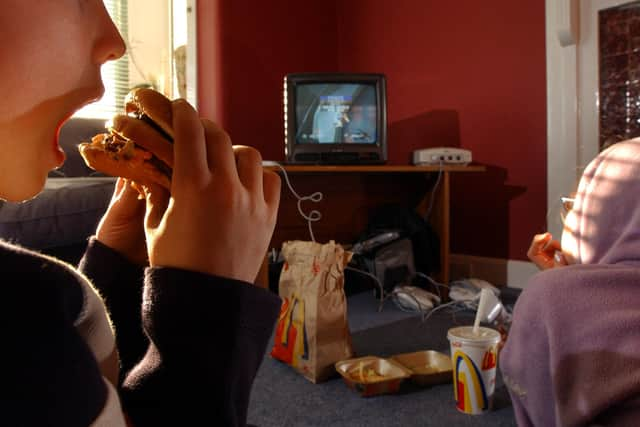Youngsters in Falkirk spending too much time in their rooms during lockdown
This article contains affiliate links. We may earn a small commission on items purchased through this article, but that does not affect our editorial judgement.
and live on Freeview channel 276
Conducted by label and wall sticker manufacturer My Nametags, the research shows 38 per cent of Scottish parents who took part in the study claim their children are spending more time in their bedroom than they did before the coronavirus.
On average, Scottish children are spending an additional five hours in their rooms per day, which is an hour longer than the national average across the UK.
Advertisement
Hide AdAdvertisement
Hide AdAround 15 per cent of Scottish parents whose children are spending more time in their rooms say they are spending six or more additional hours in there every day –suggesting many children are spending almost the entire day in the same room.


Half of parents in Scotland involved in the study say they are concerned their children have been negatively affected by this.
Boredom is the most common by-product of spending more time confined to their rooms, according to Scottish parents surveyed, however, parents revealed a
wide range of negative side effects, including decreased social skills, being less able to concentrate and being less motivated.
Advertisement
Hide AdAdvertisement
Hide AdMany parents also stated their children have a shorter temper, become more frustrated, and have less confidence than they did before the COVID-19 pandemic.
The study found children are regularly using their rooms for eating meals, doing schoolwork, playing and socialising.
Parenting Expert Bea Marshall says: “It is evident from this research, and other research that has been published over the last year, that the impact of the disruption to our children's lives due to COVID-19 has been significant.
"Lockdowns and other restrictions have meant that whole families have had to completely rethink life together and that has meant a dramatic increase in time spent together in one place, largely indoors.
Advertisement
Hide AdAdvertisement
Hide Ad“Our children have been under significant pressure to adapt quickly to a new paradigm. During times of stress, bedrooms can be places of refuge, peace and comfort so it is natural that children would seek out their private space to avoid sibling conflict, over stimulation and to recharge their energy.
"For this reason, the increased time spent in their bedrooms should not automatically be a cause for concern for parents. The impact of COVID-19 on our children's mental health is significant and is showing up in their behaviour and engagement.
"As we move towards fewer restrictions our children will have the opportunity to restore balance as they spend time with friends again, go back to their classrooms, and hopefully longer days and warmer weather will lead to more time outdoors."
My Nametags have come up with some advice for improving children’s bedroom space – create a dedicated workspace to separate homework, sleep and play and, if possible, this workspace should be outside of the bedroom.
Advertisement
Hide AdAdvertisement
Hide AdEnsure plenty of natural light is allowed into the room and tidy up clutter, since a crowded, messy bedroom can be overstimulating and lead to disruptive sleep patterns.
A tidy room will also feel brighter and airier.
Also parents can make a weekly plan to ensure the family is regularly spending time outside of the home for walks in the park and other activities.
Visit www.mynametags.com for more information.
Comment Guidelines
National World encourages reader discussion on our stories. User feedback, insights and back-and-forth exchanges add a rich layer of context to reporting. Please review our Community Guidelines before commenting.